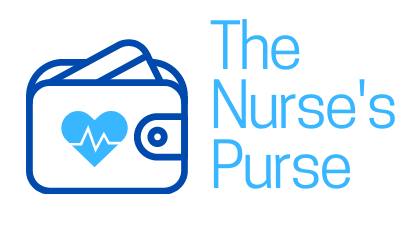Nursing is one of the most meaningful careers you can pursue, with a long list of benefits. But like any job, it comes with its fair share of highs and lows.
If you’re interested in pursuing a job in the healthcare profession and trying to decide whether or not a nursing job is right for you, read on.
We’ll walk through the biggest advantages, and a few potential disadvantages, of being a nurse.
Pros and Cons of Being a Nurse
Here’s a quick breakdown of the pros and cons of being a nurse, followed by a more in-depth look at the advantages and disadvantages of a nursing career.
What Are the Pros of Being a Nurse?
Before we consider some of the downsides of being a nurse, here’s a quick overview of why you should consider a career in nursing.
1. High Demand
One of the key lessons to come out of the COVID-19 pandemic is just how essential nurses are to our communities.
But even outside of COVID-related nursing shortages, there has always been a high demand for nurses.
That trend isn’t expected to change. According to CNBC, registered nurses and nursing assistants are among the top 15 most in-demand jobs for the next 15 years.
And that demand isn’t limited to a certain timeframe or place. Whether you’re looking for a short or long-term position, in a major city or a rural town, the need for nurses is prevalent.
2. Earning Potential
The Bureau of Labor Statistics puts the median annual salary for a registered nurse at $75,330.
That’s more than double the average salary for all professions in the United States, and data suggests that nursing salaries are continuing to rise annually.
While pay can obviously vary depending on where you live and what you specialize in, the nursing field provides incredible earning potential and can be great for your personal finances.
3. Advancement Opportunities
In some industries, the corporate ladder only has a few rungs. But in the world of nursing, there’s a lot of potential for upward mobility.
For example, as an RN you may start out caring for patients and advance into educational and administrative roles based on your experience level.
You could also open the door to different nursing roles by getting advanced certification in different specialties. And if you’re looking to take a bigger step to elevate your career, you could go back to school, getting an advanced nursing degree.
4. Flexible Schedules
If a 9 to 5 is your groove, there are loads of office nursing jobs with traditional hours on Monday to Friday.
But most hospitals and long-term facilities operate on 12-hour shifts, where you work three long days a week and enjoy four days off. Teaching and administrative roles offer even more schedule variations.
And remember how in-demand nurses are? Chances are, your local hospital could use more nurses, around the clock. If you’re looking to pick up some extra hours, you can rack up a lot of overtime as a nurse.
5. Unique Employment Opportunities
Think of anywhere on earth you’d like to spend time. Chances are, they need nurses. As a nurse, you can obviously work in a hospital, nursing home, or a physician’s office.
But you can also work on an airplane, at a school, on a cruise ship, or at your favorite football team’s stadium. The list goes on.
More than that, you can follow your heart and specialize to work with the demographic that interests you most. There are tons of nursing specializations, from domestic violence to diabetes or dermatology.
6. Relationships
Nursing isn’t a one-man or one-woman job. It’s a calling that brings you into contact with countless people, from your team of nurses to other healthcare professionals to the patients and families you serve.
As a nurse, you work with other medical professionals who have the same heart for patients that you do, working long hours together and forging tight-knit bonds with your team.
You also build indescribable relationships with your patients and their loved ones. With every moment spent caring for them, you change their lives, and they can change yours, too.
7. Dress Code
Scrubs. Need we say more?
While you shouldn’t pick a career solely based on expectations for your attire, the dress code for nurses is a noteworthy advantage.
Not many professionals’ uniforms are so soft and cozy that other people wear them as pajamas. Uncomfortable PPE aside, you can’t beat the comfort of your favorite scrubs and sneakers (or clogs if that’s your style).
8. Variety
If variety is the spice of life, it doesn’t get any hotter than nursing. Medical technology is always advancing, with exciting new research, treatments, and procedures emerging all the time.
The nursing industry constantly changes, but so does your day-to-day work.
You never know what to expect, and every shift can look different than the last as encounter a variety of patients with unique conditions and interact with a range of other healthcare workers, students, or patients.
9. Activity Level
Research suggests a desk job can have some negative effects on your heart health and lead to weight gain. While not everyone is a bedside nurse, nursing is generally a career that keeps you moving.
In addition to constantly walking across the hospital or office floor, you might also be transporting patients and doing a lot of heavy lifting, letting you get in a workout on the clock.
10. Changing Lives
Being a nurse can be stressful, exhausting, and downright heartbreaking at times, but the pros outweigh the cons for millions of nurses across the country.
According to a recurring Gallup poll, nursing is undisputed as the most respected profession because of nurses’ honesty and ethics, and it has been for over 20 years.
You can make a difference in any industry, but as a nurse, you get to directly improve and save lives every day. Even if you don’t realize it, you have a lasting impact on each patient you encounter.
What Are the Cons of Being a Nurse?
Like any profession, nursing does come with some hardships. Here are a few of the drawbacks of a nursing career.
1. Emotional Toll
A nursing career is fraught with emotional highs and lows. In addition to celebrating with your patients when they survive a close call or their quality of life improves, you’ll also experience heartache as you may be regularly faced with suffering and death.
While standing by your patients and their families through their pain and grieving is an honor, it can also be devastating and leave a lasting impact.
According to data from the Nursing Quality Inquiry Initiative, nurses are twice as likely to suffer from depression than the general population. Though you’ll likely face more good days than bad, it’s important to consider the potential impact nursing can have on your mental health.
2. Physical Demand
Being a nurse isn’t just emotionally taxing. Due to the physical demands of many nursing jobs, it can also be physically challenging.
In addition to being on your feet constantly, there’s a lot of heavy lifting involved in bedside nursing, which can result in back injuries, neck tension, and orthopedic problems. Pro tip: Invest in a pair of highly reviewed nursing shoes to save your feet some pain and avoid injuries.
3. Long Shifts
Working longer shifts may mean fewer days of clocking in, but a 12-hour shift can be exhausting. And sometimes a 12-hour shift can turn into a 15-hour one with charting and reporting. As a new nurse, you may also be expected to pull more weekend, night, and holiday shifts than coworkers who have more seniority than you.
4. High Pressure
Nurses wear a lot of hats. In a given shift, you may be helping one patient choose a TV show to watch and resuscitating a coding patient in the next. In many nursing roles, you have to maintain composure in life or death situations, think critically, and work hard for hours with little time to take a breather.
5. Risk of Exposure
A nursing career isn’t for the faint of heart. But even if the sight of blood and needles doesn’t make you squeamish, it’s important to consider the fact that you will likely be exposed to bodily fluids and contagious illnesses.
Fortunately, there are safety protocols in place to help you avoid exposure when possible and react quickly to negate risk if you are exposed.
6. Difficult People
Even though nursing is one of the most well-respected professions, sometimes nurses are under-appreciated and mistreated by the people they come into contact with at work.
Nursing is a fast-paced job, one where emotions are often running high. Sometimes patients, their families, and other medical professionals can be downright difficult to deal with.
Is a Nursing Career Worth It?
Like every other career path, nursing has its distinct advantages and disadvantages. It’s one of the most challenging roles you can undertake, but also one of the most rewarding.
Have questions about a career in nursing? Or are you a nurse with advice to share? Sound off in the comments below.


 Personal Finance Guide for Nurses
Personal Finance Guide for Nurses